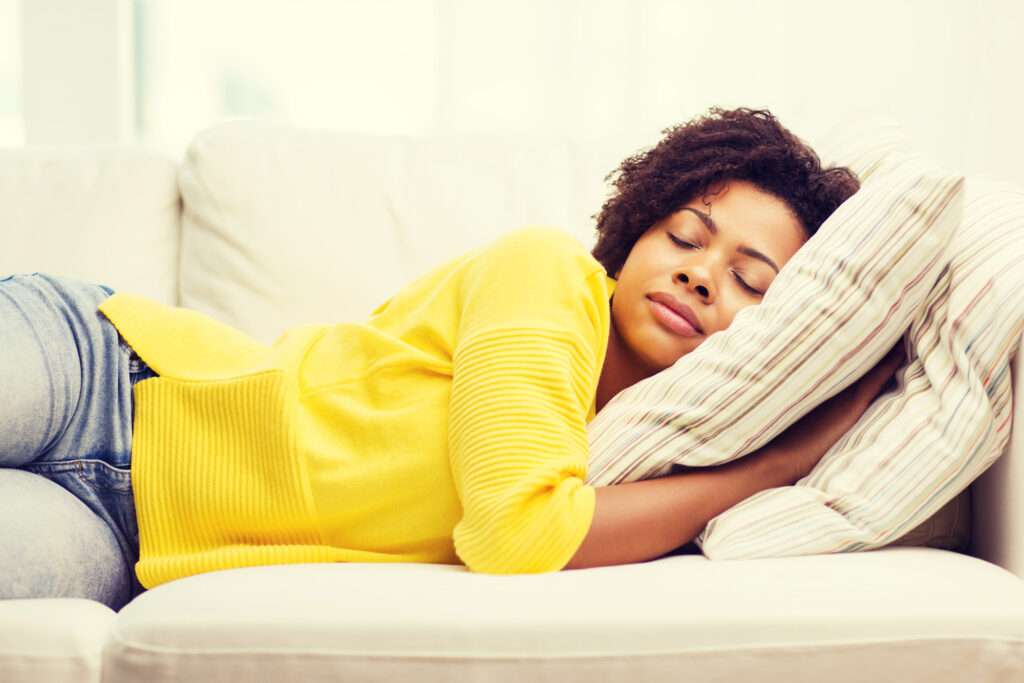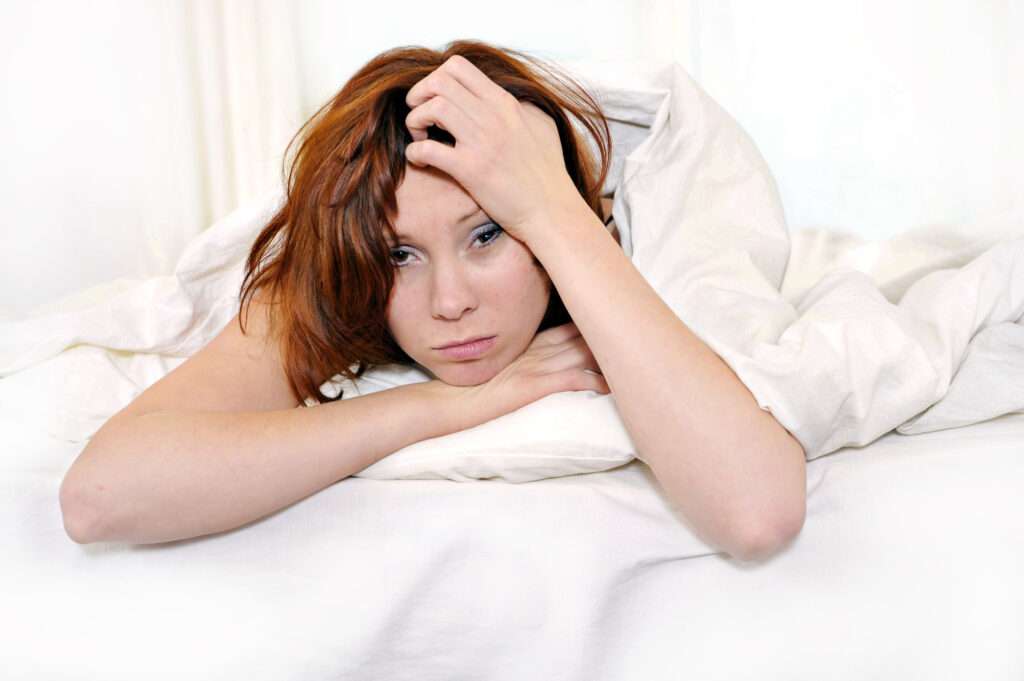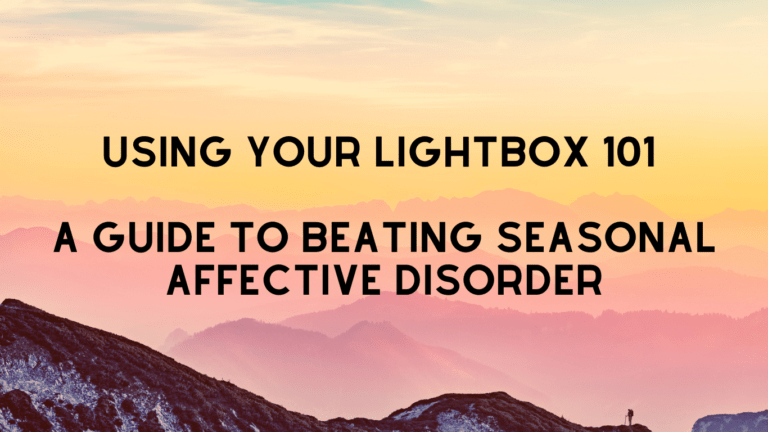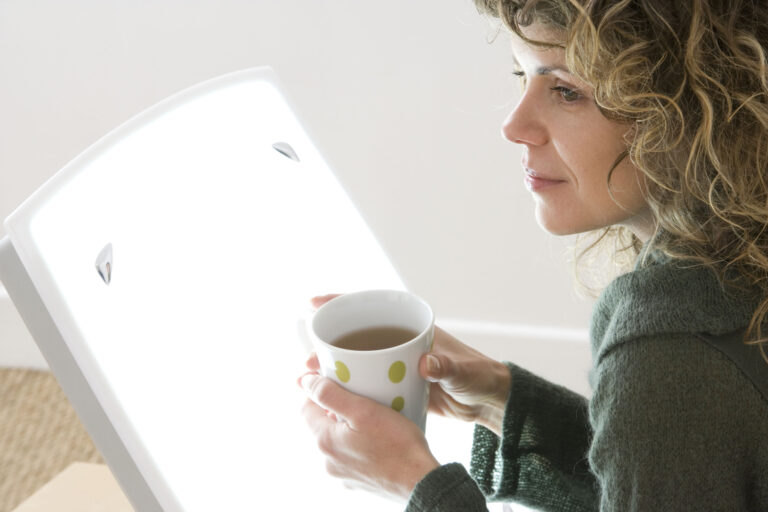How Seasonal Change Affects Your Sleep and What You Can Do About It.
Shorter days can lead to seasonal affective disorder (SAD), which is a type of depression that occurs during the fall and winter months. SAD is thought to be caused by a lack of sunlight, which can disrupt the production of melatonin and serotonin, two hormones that regulate mood and sleep.
My own personal opinion is that like other animals we are naturally designed to hibernate during the shorter days as part of our ancestral DNA. When left without artificial light we natuarlly sleep more in the winter than in the summer months.
Seasonal Affective Disorder (SAD) is a type of depression that affects many people, especially during the winter. In its milder form it is also known as the “winter blues” and can make you feel tired, irritable, and down. Although scientists don’t fully understand why SAD happens, they know that the lack of natural light in winter plays a big role.
Our bodies are naturally wired to work with nature, including our sleep patterns, which change with the seasons. Recently, people have become interested in using sleep to help fight SAD. By understanding how these changes affect our sleep and using strategies to align our sleep patterns with nature, we might be able to reduce the effects of SAD and improve our overall health.
Understanding the Impact of Seasons

Seasonal changes can have a significant impact on our sleep patterns. As the seasons change, the amount of daylight and darkness can affect our circadian rhythm, which is the body’s internal clock that regulates sleep-wake cycles. During the fall and winter months, the days become shorter, and the nights become longer, which can lead to difficulty falling asleep or waking up in the morning.
In addition to changes in daylight, seasonal variations in temperature and humidity can also affect sleep. During the summer months, high temperatures and humidity can make it difficult to fall asleep and stay asleep. On the other hand, during the winter months, cold temperatures can cause discomfort and make it harder to fall asleep.
It’s important to be aware of the impact of the seasons and how they can affect your sleep. By making small adjustments to your sleep routine, such as using blackout curtains to block out light or adjusting the thermostat to maintain a comfortable temperature, you can get a good night’s sleep and reduce the impact on your sleep patterns.
Common Sleep Disturbances Explained
If you find yourself struggling to fall asleep or stay asleep, you’re not alone. Here are a few common sleep disturbances and what they mean for your sleep:
Insomnia
Insomnia is a sleep disorder that makes it difficult to fall asleep or stay asleep. It can be caused by stress, anxiety, depression, or other underlying medical conditions.
Daytime Sleepiness
If you feel tired and sleepy during the day, it may be due to poor sleep quality or an underlying medical condition. To improve your sleep quality, try establishing a consistent sleep schedule, creating a relaxing bedtime routine, and avoiding caffeine and alcohol before bed. If your daytime sleepiness persists, talk to your doctor but there is absolutely nothing wrong in taking a nap as long as you don’t fall into a deep sleep.
To improve your sleep quality, try establishing a consistent sleep schedule, creating a relaxing bedtime routine, and avoiding caffeine and alcohol before bed.
Remember, a good night’s sleep is essential for your overall health and well-being. By understanding common sleep disturbances and taking steps to improve your sleep quality, you can wake up feeling refreshed and ready to take on the day.
Tips for Managing Seasonal Insomnia
If you experience seasonal insomnia, there are several things you can do to manage your symptoms. First, consider light therapy, which involves exposure to bright light to regulate your body’s circadian rhythm. You can also try taking melatonin supplements, which can help regulate your sleep-wake cycle.
In addition, make sure you’re getting enough exercise during the day, as physical activity can help regulate hormones and improve sleep quality. Also, establish a consistent sleep routine by going to bed and waking up at the same time every day, even on weekends.
Finally, try to reduce stress and anxiety by practicing relaxation techniques like deep breathing or meditation.
Strategies to Combat Sleepiness
To combat sleepiness during try taking power naps or cold showers to boost your energy. Incorporating exercise into your daily routine can also help combat fatigue and sluggishness. Maintaining a consistent sleep schedule and adjusting your routine for daylight saving time or time changes can also improve your sleep quality.
When feeling sleepy during the day, try taking a 20-30 minute power nap to recharge your energy levels. A cold shower can also help wake you up and increase alertness. Regular exercise can also improve your sleep quality and increase overall energy levels.
To maintain consistent sleep patterns, try to establish a routine and stick to it as much as possible. This can include going to bed and waking up at the same time every day. Adjusting your routine for daylight saving time or time changes can also help you adapt to the changing seasons.
If you are experiencing jet lag, try gradually adjusting your sleep schedule to the new time zone before your trip. This can help minimize the effects of jet lag and help you sleep while travelling. You can also buy visors such as this one which helps you adjust between time-zones. I often travel between the UK and Canada and I take this to help ease into the 8 hour time difference. Another tip I have been given when travelling to get into the new zone as quickly as possible. This means that if you arrive during the day, try to keep going until the evening, and if you arrive during the evening then regardless of what time your body is telling you it is, go to bed.
By incorporating these strategies into your daily sleep habits, you can combat sleepiness and improve your overall sleep quality
Tips for taking a nap

I have been a napper since I was a child and I still nap or rest most days if I can but if you are not tired don’t feel that you have to take a nap.
- Keep it short: A nap should be no longer than 20-30 minutes to avoid disrupting your natural sleep cycle. I often set a timer to wake me after 20 minutes.
- Find a comfortable spot: Choose a quiet and comfortable place to nap, I usually lie on my bed or stretch out on the sofa.
- Set the mood: Dim the lights or close the curtains to create a relaxing environment.
- Nap at the right time: The best time to nap is in the early afternoon, between 1 pm and 3 pm.
- Don’t make it a habit: Napping too frequently can disrupt your nighttime sleep schedule, so try to limit napping to once per day or less.
Creating a Sleep-Friendly Environment
To ensure a good night’s sleep, it’s essential to create a sleep-friendly environment. One of the most important factors to consider is the room temperature. The ideal temperature for sleeping is between 60 to 67 degrees Fahrenheit or between 15 to 20 Celcius.
You can use a fan or adjust the thermostat to achieve this temperature range.
Light is another crucial factor that affects sleep. Exposure to bright light can disrupt your sleep cycle, so try to minimize light exposure in your bedroom. You can use blackout curtains or a sleep mask to block out any unwanted light. If you need to wake up to a dark room, consider using a light box to help regulate your circadian rhythm. You can now buy alarm clocks which gradually brighten to mimic the sunrise which decreases your melatonin allowing you to wake more naturally.
Your bedding can also affect your sleep quality. Choose comfortable and breathable sheets that will keep you cool and dry throughout the night. A good mattress is also essential for a good night’s sleep. Make sure you choose a mattress that offers the right level of support and comfort for your body. The life of a mattress is about 10 years and it is advisable to replace it after that.
Finally, consider taking a warm bath or shower before bedtime to help you relax and unwind. The warm water can help lower your body temperature, making it easier to fall asleep. You can also use a fan to circulate cool air and create a comfortable sleeping environment. Adding a couple of drops of lavender oil to your night-time bath or shower can also aid with relaxation and sleep.
By creating a sleep-friendly environment, you can improve the quality of your sleep and wake up feeling refreshed and energized.
Seeking Professional Help When Necessary

It is important to prioritize your health and seek help if you are struggling with sleep. Poor sleep can have a negative impact on your immune system and overall health. A healthcare provider can help you develop a plan to improve your sleep and overall well-being.
In some cases, light therapy may be recommended to help with seasonal variations in sleep. This involves exposure to bright light at specific times of the day to help regulate your body’s natural sleep-wake cycle.
Remember that seeking professional help is a sign of strength, not weakness. Taking care of your health is important, and a healthcare provider can provide the support and guidance you need to improve your sleep and overall well-being.
Frequently Asked Questions
Do seasonal differences impact my sleep schedule?
Yes, the change in seasons can affect your sleep schedule. As the days get shorter in the fall and winter, your body may produce more melatonin, which can make you feel sleepier. In the spring and summer, longer daylight hours can make it harder to fall asleep at night.
Why do I feel more tired during certain seasons?
Changes in temperature, humidity, and daylight can all impact your sleep quality. During the winter, colder temperatures can make it harder to fall asleep and stay asleep, while in the summer, higher temperatures and increased humidity can disrupt your sleep.
Can seasonal affective disorder impact my sleep?
Yes, seasonal affective disorder (SAD) can impact your sleep. Symptoms of SAD include feeling tired, having low energy, and oversleeping. If you think you may have SAD, it’s important to talk to your doctor.
Is it normal to need less sleep in the summer?
It’s not uncommon to need less sleep in the summer. Longer daylight hours can make it harder to fall asleep at night, and you may find yourself waking up earlier in the morning. However, it’s important to make sure you’re still getting enough good quality sleep to feel rested and alert during the day.
Try to maintain a consistent sleep schedule, even on weekends. Avoid caffeine and alcohol before bedtime, and make sure your bedroom is cool, dark, and quiet. You may also want to consider using blackout curtains or a white noise machine.
What are some tips for resetting my circadian rhythm in the winter?
To reset your circadian rhythm in the winter, try to get as much natural light as possible during the day. You may also want to consider using a light therapy box, which can simulate natural sunlight and help regulate your sleep-wake cycle. Avoiding screens before bedtime and sticking to a consistent sleep schedule can also help.








